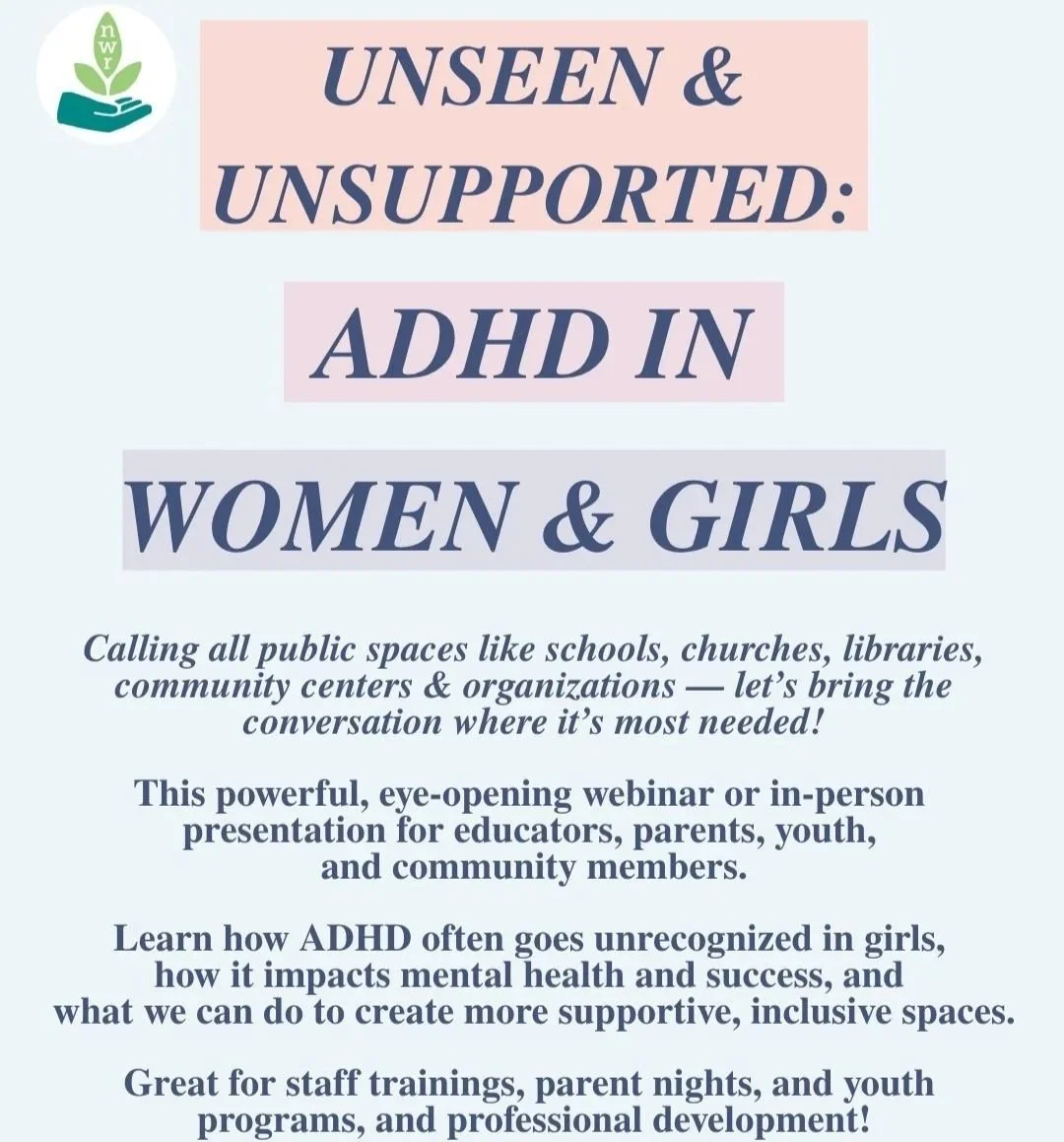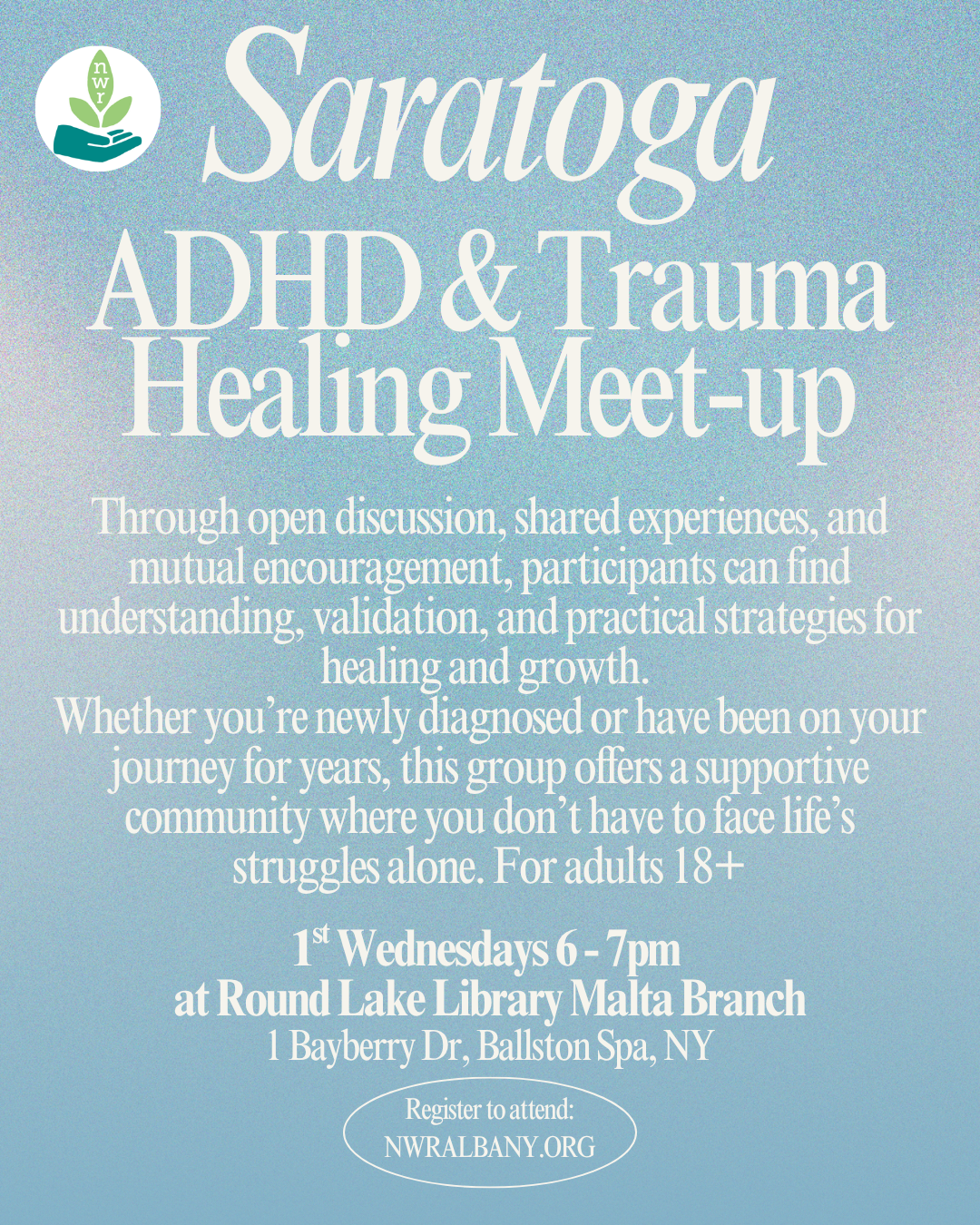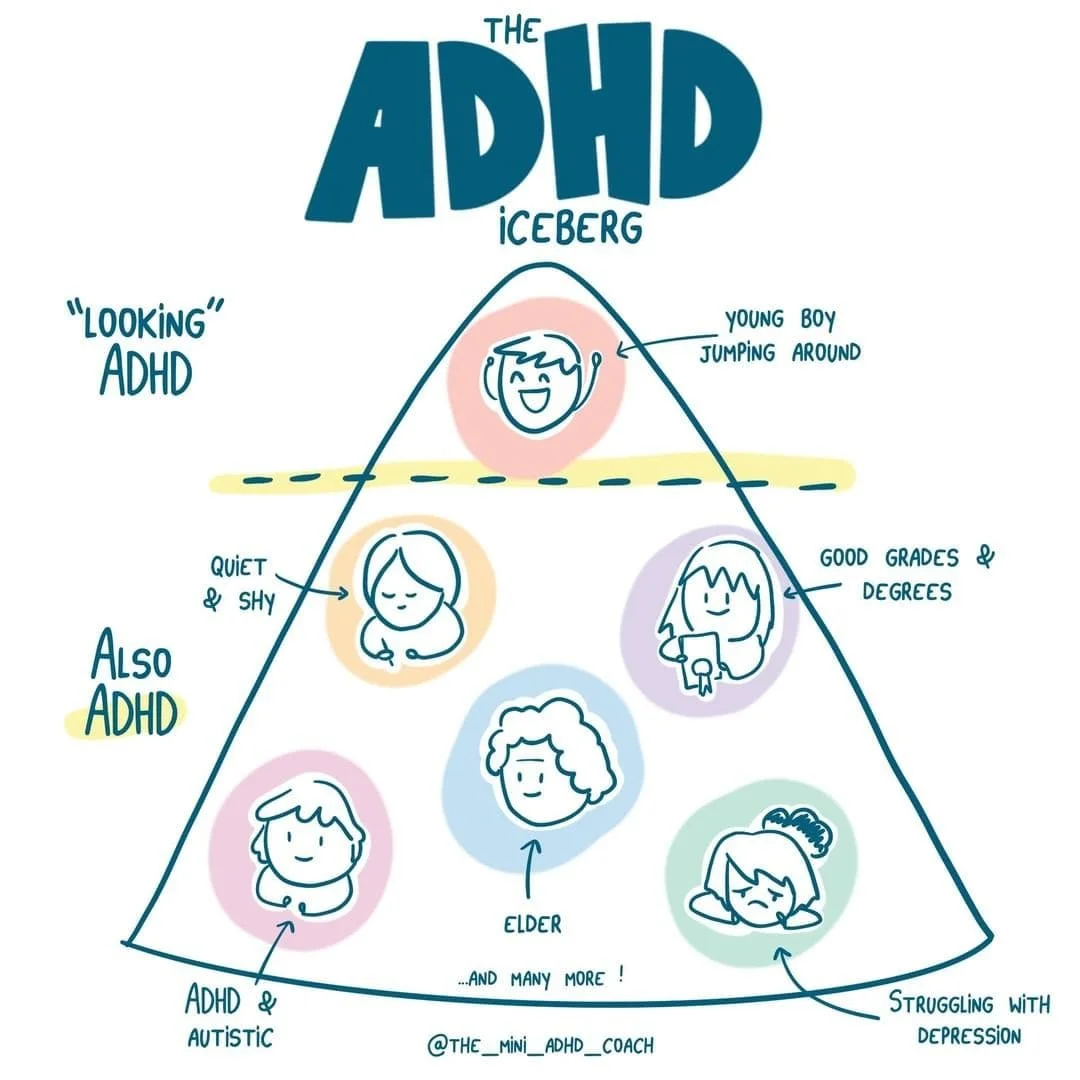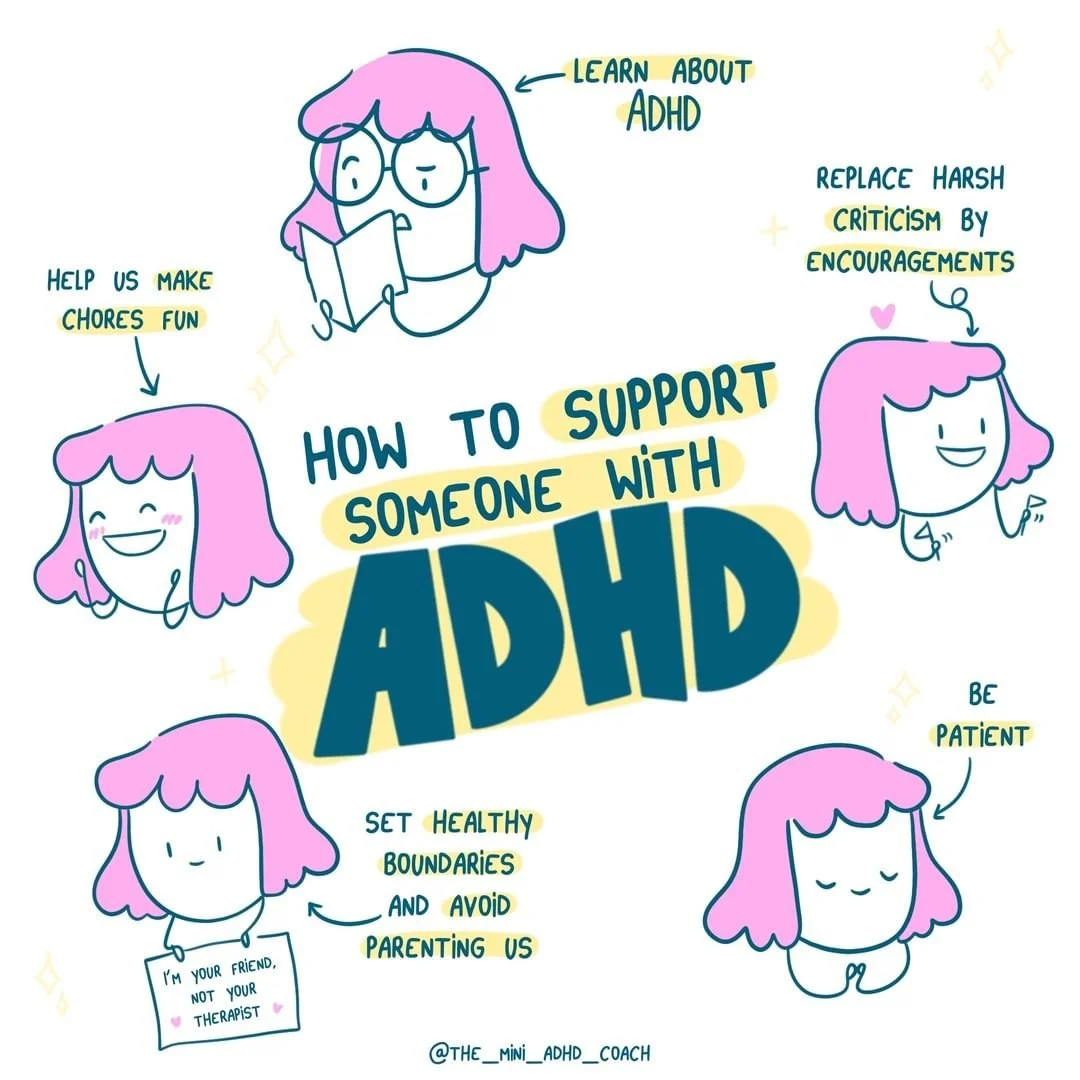Where ADHD Awareness Meets Community Action
At Noteworthy Resources, we’re dedicated to raising awareness and fostering understanding for individuals and families living with ADHD. Through our annual ADHD Awareness Walk, peer meet-ups, and the ADHD Awareness Coalition, we connect, educate, and empower our community to break stigma and build support.
In partnership with national organizations, we bring the latest ADHD research and resources—especially for women and girls—to the Capital Region. Together, we’re turning awareness into action.
Programs that have started since our first ADHD Awareness Walk:
Inspiration behind it all…
“My recent ADHD diagnosis at 36 has reframed a lifetime of being perceived as a 'bad kid' and 'lazy,' revealing a past where crucial signs were missed.
Despite a 4th-grade evaluation suggesting ADHD, my refugee parents' limited understanding of the American system resulted in a lack of support. This oversight led to significant academic and behavioral struggles throughout my youth.
Now, I am channeling my anger and resentment into proactive and empowering advocacy, committed to preventing other women and girls from experiencing similar systemic failures.”
-Tatiana Benack, Founder
FindtheADHDgirls.org
Would your life be different if you were diagnosed as a child?
Find the ADHD Girls is dedicated to increasing awareness of ADHD in girls. Visit our resources page for more information on ADHD, including handouts, videos, comics, and books.









